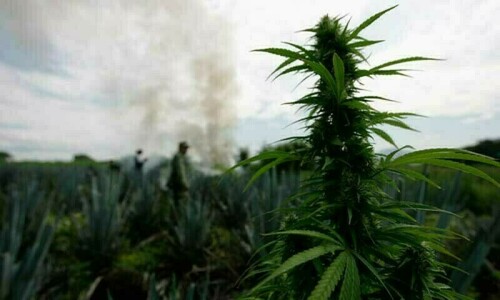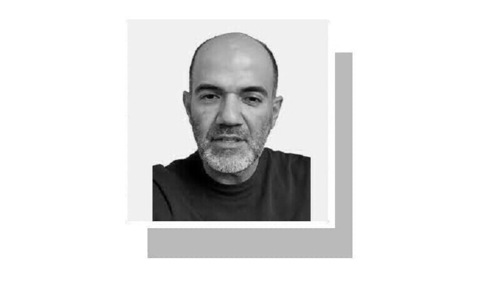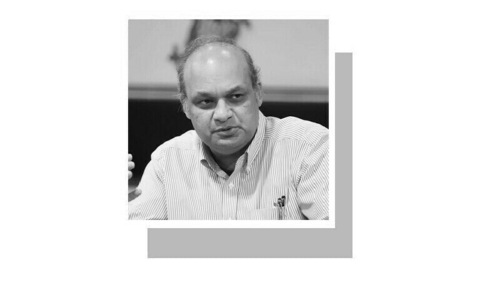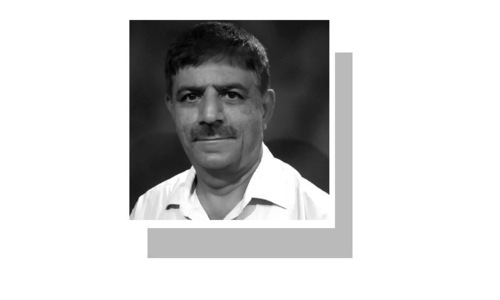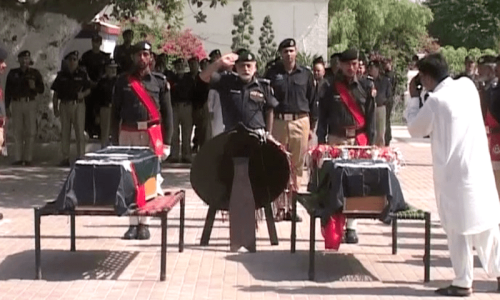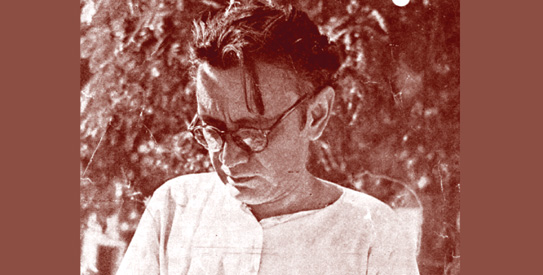
KARACHI, Jan 18: A discerning audience was on Wednesday treated to an interesting conversation, titled 'Progressives and Perverts' with Kamran Asdar Ali that primarily focused on Sadat Hasan Manto's writings with respect to society and the inception of Pakistan.
The discussion, which took place at T2F in connection with Manto's death anniversary (Jan 18), was intelligently moderated by Asif Farrukhi.
Describing the title of the event, Mr Ali, who teaches anthropology at the University of Texas, talked about the genesis of the Progressive Movement which took root in the 1930s and reached its zenith in the mid40s, and the way the progressives (ill)treated and dealt with some of the remarkable writers and poets like N.M.
Rashid, Miraji, Majaz and Manto. The progressives dubbed their writings fuhush (obscene), from where the word 'perverts' became part of the title.
In the beginning of the conversation, Mr Ali poignantly said that partition of the subcontinent killed Majaz, Manto and Miraji all of them passed away within the span of a few years after the partition. He said Majaz to a certain extent retained affiliation with the progressives but died a sad death. The three of them were sensitive people, he said.
He touched on Miraji's ambiguity about sexuality (the way he dressed up) and stated he gave off a quasi-feminine, queer vibe.
At that point, Mr Farrukhi interjected saying it did not mean that Miraji was not what he was, and argued that he was a great poet; critics had shied away from acknowledging his worth the way he merited.
Mr Ali said while Manto had been resurrected, Miraji was either lost to us or was bracketed into a certain literary tradition. In the same vein, he iterated, noted critic Mohammad Hasan Askari was labelled a right-wing zealot but 'he had different phases'. He said by branding people exclusionary and inclusionary methods were adopted; later on Manto was included in the literary canon. But there was a time when Manto was censored and taken to task. He said in 1949 the progressives saw perversions in his writings and that he saw a dark future for the nation (tareek mustaqbil dekhtep hain). He said the state, ironically, also looked at Manto the same way. Here, Mr Farrukhi mentioned that Manto's story Bhook was condemned by the progressives.
Mr Ali said the Communist Party and people like Sajjad Zaheer also took issues with certain (pervert) writers.
There was rigidity in their approach and every person who thought differently was severely attacked for not conforming to their ideas. The exclusionary approach was a mirror-image of that of the state's conduct. He said this was the time when the debate regarding Pakistan's future was on. He stressed that in the beginning (after independence) it used to be frequently discussed as to what kind of institutions we needed, what kind of culture we desired. This made Mr Farrukhi recall that Manto, in one of his pieces, had raised the issue regarding what would Pakistani literature be. Mr Ali then read out from that piece.
When Mr Farrukhi commented that at the time such questions were open, Mr Ali echoed that Manto suggested another kind of openness.
Mr Ali argued that after partition Muslim nationalism had its shortcomings because apart from being Muslims, people belonged to different ethnic, cultural groups and not just to the regions where Urdu was spoken or understood.
As a result of which Bangladesh came into being and now Balochistan was in turmoil. He mentioned Manto's book Siah Hashyey and told the audience that the writer had raised the question of identity in it.
Mr Farrukhi chimed in and said Sajjad Zaheer severely criticised the book for attacking an important struggle.
Mr Ali at that juncture referred to Manto's stories, Safai Pasandi, Munasib Karawai and Sorry. He said the opening of the trousers in Sorry hinted at the diversity that existed in society and the issue of 'who we are'. He saidMohammad Hasan Askari's opinion of Siah Hashpey hinted at the liberal streak in the critic and that he saw Manto trying to create another future for Pakistan where there'd be civil freedom, intellectual pursuits etc. However, Askari sahib went through different phases.
After that the discussion switched to the topic of women's digest with respect to the famous Teen Aurtein Teen Kahanian (three women, three stories) culture.
Mr Ali said whoever wrote those stories showed that fantasies had links to real situations. Matters such as 'impotence' and 'wife turning out to be a man' were discussed in those tales, which made women open up. 'They can now answer back to men.
Mr Farrukhi brought up the famous series Chhalawa, which many thoughtwas written by Sabiha Bano. Mr Ali, however, said he had met Humayun Iqbal, the writer of the series, and had discussed the impact of that series on society.
'Urban ruins' The last subject of the discussion was the city of Karachi, which Mr Ali described as 'urban ruins'. He lamented there was a time when Panorama Centre was the place to be; it had the first escalator. 'Today, it cuts a ruinous picture.
The same could be said about some other places (Sea Breeze Plaza, Al Azam Square etc), he added.
He was of the opinion that technology's advancement did not necessarily mean the fulfillment of all the promises.
The conversation was followed by a question-answer session.














